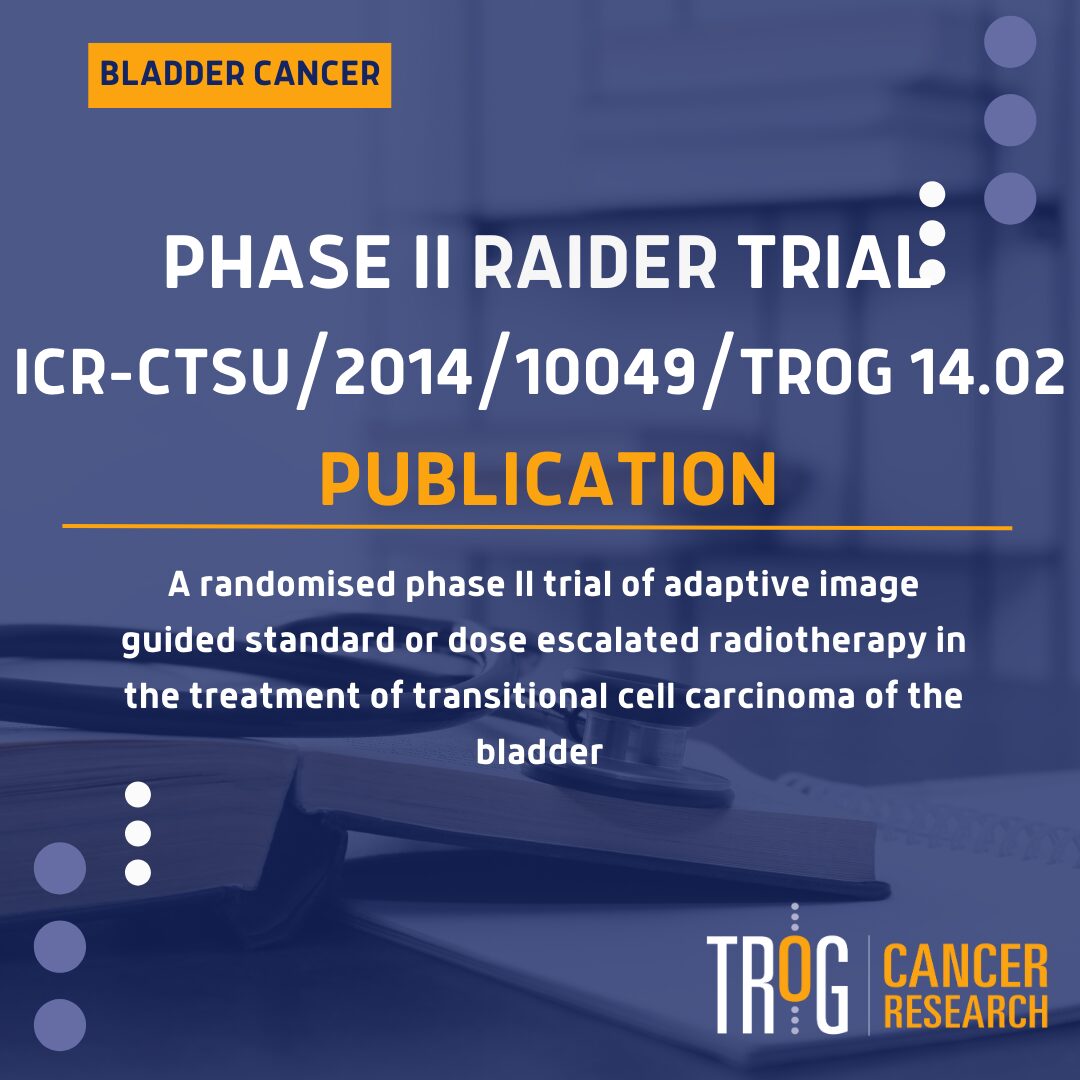24 October 2024:
Newly published findings from the ICR-CTSU/2014/10049/TROG 14.02 RAIDER trial offer promise for the use of complex adaptive radiotherapy as an alternative to radical surgery for bladder cancer.
The RAIDER team published their significant phase II trial findings in the European Urology journal in October.
The trial, led by The Cancer Research Institute (UK) with international PI Professor Robert Huddart, involved 345 patients from 46 centres in the UK, Australia and New Zealand, and investigated whether it is possible safely deliver complex adaptive radiotherapy for patients with muscle-invasive bladder cancer.
Bladder-sparing radiotherapy is challenging because the bladder is highly mobile and deformable, so large margins need to be planned around the tumour target to achieve good coverage. However, this results in more healthy tissue being unnecessarily exposed to radiation.
Adaptive radiotherapy aims to adjust the dose of radiotherapy based on the “anatomy of the day”, with higher doses of radiotherapy delivered to the smaller area targeting the tumour, and lower doses to surrounding areas.
The RAIDER trial evaluated standard whole bladder radiotherapy (WBRT), standard-dose adaptive radiotherapy (SART) and dose-escalated adaptive radiotherapy (DART).
TROG Cancer Research was the Australian and New Zealand sponsor of the trial, as well as being responsible for trial co-ordination and Radiation Therapy Quality Assurance (RTQA) for the Australian and New Zealand trial centres.
The study found that the DART approach was safe and feasible, with a relatively low rate of serious side effects and similar survival rates to those seen in patients undergoing cystectomy (bladder removal surgery).
TROG Chief Investigator Prof Farshad Foroudi said the findings suggested that radiotherapy dose escalation could be delivered successfully to the tumour, while reducing the dose of radiotherapy to the rest of the bladder.
“While further randomised studies are needed to confirm these findings, the early results are promising as they suggest it could be safe and effective to use dose-escalated radiotherapy to control bladder cancer. Results in such studies are similar to cystectomy (bladder removal surgery) while allowing for the patient’s natural bladder to be retained. It will be important to have future confirmatory studies in this area,” he said.
Congratulations to Prof Farshad Foroudi, and all the trial team, including TROG Clinical Research Associate Courtney Hill (Wheeler), A/Prof Ben Hindson, A/Prof Colin Tang and Professor Tomas Kron, who were involved with the Australian and New Zealand arms of the study.
Read the full paper in press in European Urology
Related Post
First patient recruited for trial of new imaging modality for lung cancer
LATEST NEWS: 24 February 2026 The first Australian participant
TROG Member Prof Paul Keall’s innovative research recognised in two Premier’s Awards
LATEST NEWS; 26 November 2025 Medical physics researcher and




